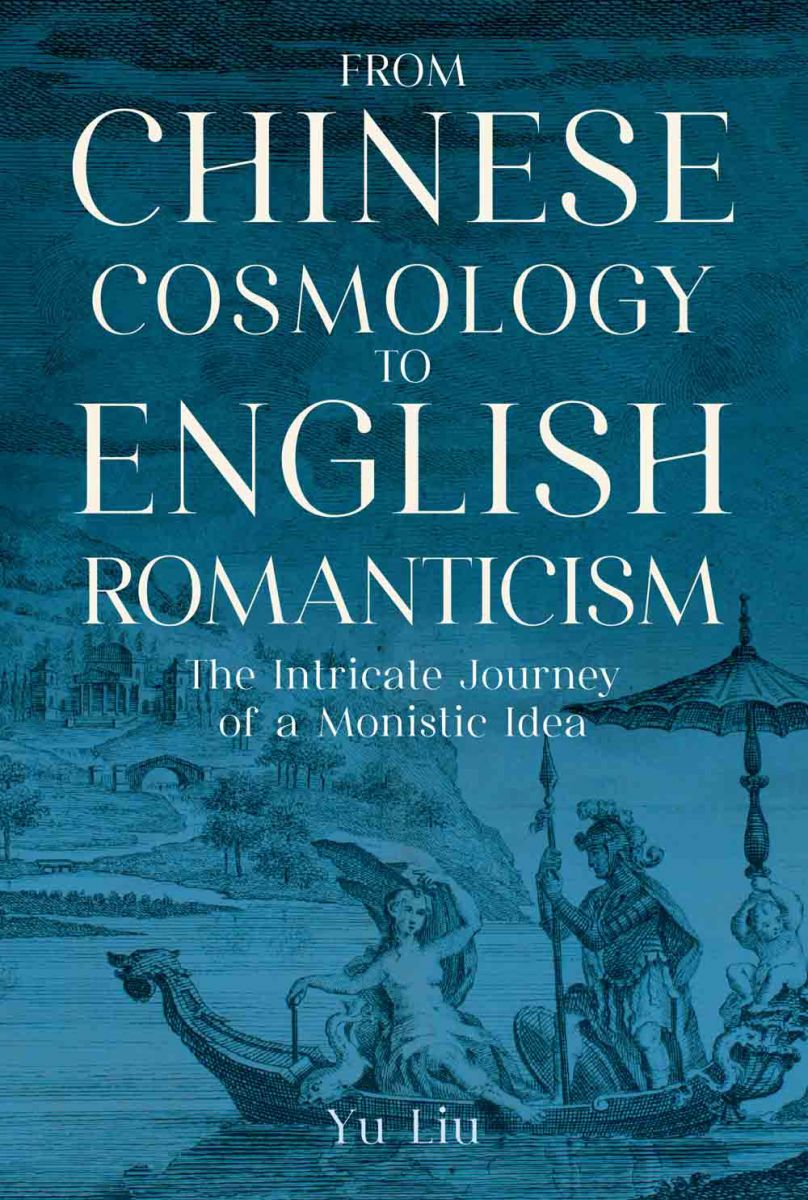From Chinese Cosmology to English Romanticism: The Intricate Journey of a Monistic Idea新書出版2023-05-22
 From Chinese Cosmology to English Romanticism: The Intricate Journey of a Monistic Idea(從中國文化到英國浪漫主義詩歌 ──天人合一概念的轉移歷程)
From Chinese Cosmology to English Romanticism: The Intricate Journey of a Monistic Idea(從中國文化到英國浪漫主義詩歌 ──天人合一概念的轉移歷程)
From Chinese Cosmology to English Romanticism explores the intricate early-modern English and European reception of the Chinese monistic idea tianren heyi or humanity’s unity with heaven via the Chinese rites controversy, the philosophical innovation of Spinoza, the transformation of English garden layout, and the poetic revolution of Coleridge and Wordsworth.
“Yu Liu offers a groundbreaking analysis of cross-cultural exchange by exploring the influence of Chinese philosophical traditions on English art, gardening, and literature up to the Romantic period . . . A must-read for scholars interested in Anglo-Chinese relations between 1600 and 1830.”
—Robert Markley, W. D. and Sara E. Trowbridge Professor of English, University of Illinois Urbana-Champaign
“In this deeply learned study, Yu Liu traces a ‘relay of ideas’ that made their way from Chinese philosophy to Western Romanticism, transformed along the way in Spinoza’s thought and in theories of English landscape gardening. A tour de force of intellectual history, his book shapes a persuasive story out of disparate strands whose significance deepens when seen in a unifying perspective.”
—Leo Damrosch, Ernest Bernbaum Research Professor of Literature, Emeritus, Harvard University
“A thoughtful and imaginative attempt to trace the migration of the ancient Chinese cosmological unity of heaven and humanity to seventeenth-andeighteenth-century Europe via the China Jesuits, Spinoza, Coleridge, and Wordsworth, leading to the redesign of English gardens and Romantic poetry.”
—D. E. Mungello, professor of history emeritus, Baylor University
“In his powerfully original monograph, Yu Liu upends the all-too-familiar asymmetry of theorizing Chinese culture through a Western conceptual structure. He mounts a carefully documented and compelling argument that the ‘idea’ of the persistent Chinese organismic worldview captured in the language of ‘humanity’s unity with nature’ set its roots in the antinomian European Enlightenment thinkers as early as the complex Rites Controversy, and then spreads out as a root system through the heretical philosopher Spinoza to shape British Romanticism in all of its parts.”
—Roger T. Ames, Peking University